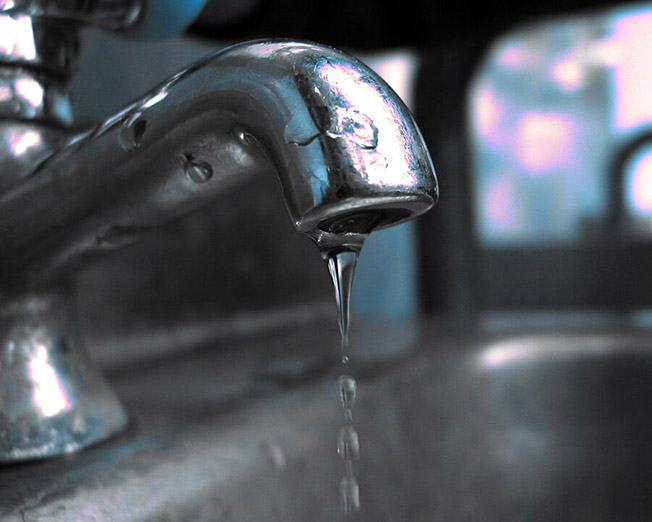Newsletter / November 7, 2023

Did you know that just one small water leak in your home can waste thousands of gallons of water per year? Leaks can also lead to structural damage, contribute to mold problems and cause your monthly water bill to soar. For this reason, regular home plumbing maintenance is essential. While some leaks may be obvious, such as a drippy faucet, others are harder to detect. Here are some simple ways to check and test for leaks in your home without having to resort to calling a plumber.
Toilets. Household water leaks most commonly originate from the toilet. If you’re not sure exactly where the water is leaking from, you can test it by adding food coloring to your tank. Let it sit for 10-15 minutes without flushing, and observe to see if any colored water is leaking out. Inside the tank, the most common culprits for leaks are worn toilet flappers and fill valve shank gaskets or refill tubes. Most toilet leaks are an easy fix, and the parts are fairly inexpensive. One issue that can’t be fixed is a cracked tank; you either have to replace the tank or install a new toilet.
Faucets and sinks. Faucets are also well-known for leaks, and for threatening the sanity of even the most patient person with their constant dripping. Fortunately, usually you just need a replacement part, like a new O-ring, to fix a leaky faucet. As for the sink, sometimes leaks around the rim can be a problem. Signs of this type of leak include stains, damaged counters, water around the sink, a loose faucet base, and caulk that is breaking down. To verify a sink leak, use a sponge to drip a good amount of water around the base of the faucet and the rim of the sink, then check under the sink and in the cabinet for signs of leakage. If water is present, re-caulking around the sink will usually take care of the issue. If your sink has undermount clips, those should be tightened as well.
Showers and tubs. Other indicators of bathroom leaks include curled or warped flooring, water stains and loose tiles. Leaks around shower doors are easy to spot: just step inside the shower, close the door and splash water all around the door seal. If there’s water on the bathroom floor when you’re done, you have a problem. In this case, your best bet is to replace the door gaskets and floor sweep, and it couldn’t hurt to re-caulk the frame. The tub or shower drain is another spot that is susceptible to leaks. An easy way to test for a leaky drain is to block it, add enough water to make a puddle, then observe if the puddle shrinks. If it does, you may need to re-caulk, replace a gasket or put in a new drain.
Water leaks in the home should be taken care of as soon as they are discovered to prevent damage to your house, costly water bills and the unnecessary waste of one of our most precious resources. If you discover a leak and are unwilling or unable to fix it on your own, a quick call to the Handyman Connection at 1-800-88-HANDY is all it takes to find a reliable handyman plumber. Contact us today!